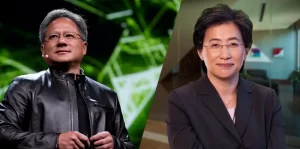Introduction
In recent years, Taiwan’s Manufacturing Sector has been a key driver of the nation’s economic growth. However, 2022 saw significant shifts within this sector, with both challenges and opportunities emerging.
Let’s delve into the intricacies of Taiwan’s manufacturing landscape based on the latest statistics released by the Ministry of Economic Affairs.
Follow us on LinkedIn for everything around Semiconductors & AI
Revenue and Profit Dynamics
The Ministry’s statistics reveal a notable decrease in revenue and profits among listed manufacturing companies in 2022. Despite this, there’s a silver lining in the form of increased investment in research and development (R&D). Last year, R&D expenditure soared to a record high of NT$692.7 billion, indicating a strategic shift towards innovation and technological advancement.
Read More:$42 Million: PSMC Opens New Factory to Produce 50,000 12-Inch Wafer including CoWoS – techovedas
Revenue Decline:
The combined net revenue of 1,101 listed manufacturing companies stood at NT$18.877 trillion, marking a 10.7% year-on-year decrease.
Notably, major players like Hon Hai (Foxconn), TSMC, and Pegatron occupied the top spots in terms of revenue generation.
Read More:Satya Nadella, Sam Altman, and Sundar Pichai to Join U.S. AI Security Advisory Board – techovedas
Profit Challenges:
TSMC emerged as the profit leader with NT$907.4 billion, followed by UMC and MediaTek. However, the overall profitability of the sector witnessed a decline, largely attributed to various factors such as weakening consumer demand and fluctuating raw material prices.
R&D Expenditure: A Contrary Trend
Amidst the revenue and profit downturn, Taiwan’s manufacturing sector exhibited resilience in R&D spending.
Despite economic challenges, R&D expenditure increased by 2.9% compared to the previous year, reaching a new high.
Electronic component manufacturers led the R&D investment, followed closely by computer and optical product manufacturers. Together, they accounted for nearly 88% of the total R&D spending.
Read More: 30% Cheaper: Mindgrove Launches India’s First Commercial SoC – techovedas
Leaders in R&D Investment:
TSMC spearheaded R&D investment with NT$178.7 billion, underscoring its commitment to technological innovation.
MediaTek and Realtek Semiconductor followed suit, showcasing a concerted effort by key players to stay ahead in the innovation race.
Fixed Asset Investments
While overall fixed asset investment witnessed a decline, specific sectors such as chemical materials and petroleum products demonstrated growth, driven by initiatives to address carbon neutrality goals.
TSMC remained dominant in fixed asset investments, followed by UMC and Powerchip Semiconductor.
Future Outlook
Despite the current challenges, Taiwan’s manufacturing sector is poised for resilience and innovation-driven growth.
The strategic emphasis on R&D investment underscores the industry’s commitment to staying competitive in a rapidly evolving global landscape.
Read More: Samsung Foundry Makes Bold Move: Partners with DSP to Secure Overseas Market Share – techovedas
Conclusion
In conclusion, Taiwan’s manufacturing sector experienced revenue and profit setbacks in 2022, attributed to various market challenges.
However, the sector’s unwavering commitment to research and development signals a promising trajectory towards sustainable growth and technological leadership.
As the industry navigates through uncertainties, strategic investments in innovation and adaptability will be key to maintaining its competitive edge on the global stage.




